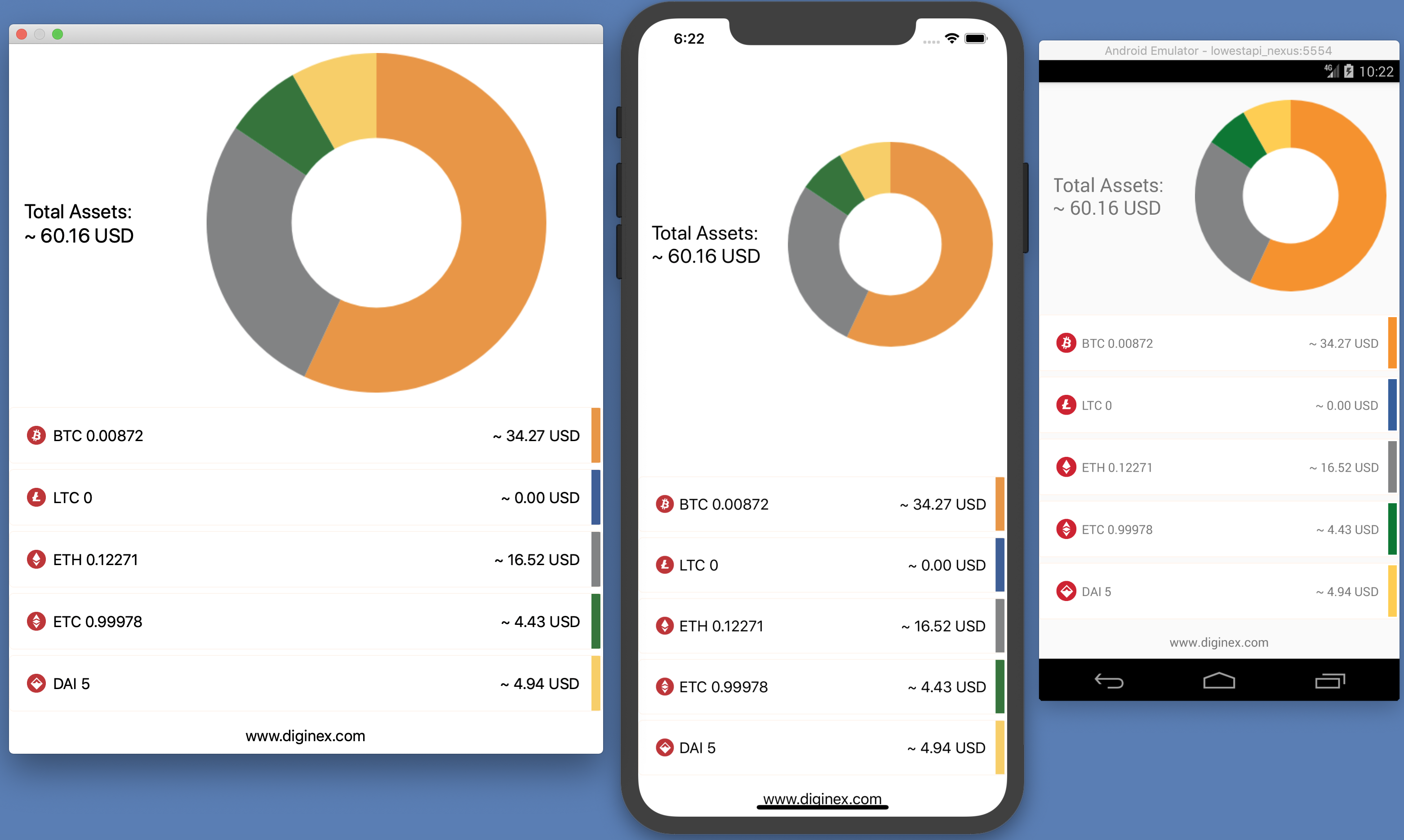 GWallet
GWallet
Welcome!
GWallet is a minimalistic and pragmatist crossplatform lightweight opensource brainwallet for people that want to hold the most important cryptocurrencies in the same application with ease and peace of mind.
Principles
This is a wallet that prioritizes convenience & security over privacy. Examples:
- Convenience: it is a lightweight/thin wallet (you don't need to download whole blockchains to use it, unlike with fullnode wallets).
- Convenience over privacy (I): it's a wallet that can handle multiple cryptocurrencies, so its UX needs to be as generic as possible to accomodate them, therefore only contains minimal currency-specific features. For example, given that the concept of "change-addresses" doesn't exist in the Ethereum world (a concept initially thought to help privacy in the bitcoin world, but which doesn't achieve much of it in the end), then it is not used even when sending bitcoin, to avoid cluttering the UI/UX with currency-specific features/complexities. We will still be investigating the support of more robust privacy features such as the ones provided by TumbleBit or ConfidentialTransactions.
- Convenience over privacy (II): servers from other wallets' infrastructure is reused (e.g. Electrum's Stratum protocol), however TLS communication is still unsupported (this only hinders privacy but doesn't pose any security risk).
- Security (I): it's a desktop/mobile wallet, not an online/web wallet like others (e.g. web wallets are easy targets: https://twitter.com/myetherwallet/status/988830652526092288 ).
- Security (II): it has cold-storage support (you can run it in off-line mode and import/export transactions in JSON files), but not hardware wallet support. Remember, cold storage is not the same as 'hardware wallet'. This is a software wallet, but which works in air-gapped devices (computers/smartphones) thanks to its cold-storage support, which means that it's safer than hardware wallets (after all, bugs and security issues are constantly being found on hardware wallets, e.g.: https://saleemrashid.com/2018/03/20/breaking-ledger-security-model/).
- Convenience (II): there are no pre-generated seeds, this is a brainwallet that uses your passphrase as a seed phrase, so that you don't need to keep backups anymore (and if you have any doubt about the security of this, understand that a hacker will always want to try to solve the WarpWallet challenge rather than target you directly).
In the development side of things, we advocate for simplicity:
- We will always be standing in the shoulders of giants, which means that we should not reinvent the wheel, thus we have a complete commitment to opensource as way of evolving the product and achieving the maximum level of security/auditability; unlike other multi-currency wallets (cough... Jaxx ...cough).
- We will try to only add new features to the UX/UI that can be supported by all currencies that we support, and we will prioritize new features (Layer2: micropayments) over support for new currencies (no shitcoins thanks).
- Thanks to our usage of Xamarin.Forms toolkit, our frontends are based on a single codebase, instead of having to repeat logic for each platform.
Roadmap
This list is the (intended) order of preference for new features:
- Xamarin.Forms frontends (in progress, see the 'frontend' branch)...
- Support for payment-channels & state-channels (in BTC/LTC via lightning, and in ETH/ETC/DAI via Raiden)
- snap packaging.
- NFC support.
- Tizen frontend (no QR scanning due to missing camera in most Tizen watches, but could use NFC).
- Paranoid-build mode (using git submodules or local nugets, instead of binary nuget deps), depending on this RFE or using any workaround mentioned there.
- flatpak packaging.
- In mobile, allow usage when camera permissions have not been granted, by letting the user redirect him to his camera app and take a picture (see https://youtu.be/k1Ssz1dvcpk?t=63).
- Use of 'bits' instead of BTC as default unit. (See: https://www.reddit.com/r/Bitcoin/comments/7hsq6m/symbol_for_a_bit_0000001btc/ )
- MimbleWimble(Grin) support.
- Threshold signatures.
- Use deniable encryption to allow for a duress password/passphrase/pin.
- ETH gas station (to pay for token transactions with token value instead of ETH).
- Decentralized currency exchange? (e.g. eth2dai.com)
- Fee selection for custom priority.
- Multi-sig support?
- Crosschain atomic swaps (via comit network? more info here and here).
- Decentralized naming resolution? (BNS/ENS/OpenCAP/...)
- Tumblebit support?
- Consider Vitalik's 1wei wallet-funding idea in case the community adopts it.
Anti-roadmap
Things that are not currently on our roadmap:
- ZCash/Dash/Monero support (I don't like the trusted setup of the first, plus the others use substandard privacy solutions which in my opinion have been all surpassed by MimbleWimble/Grin).
- BCash (as it's less evolved, technically speaking; I don't want to deal with transaction malleability or lack of Layer2 scaling).
How to compile/install/use?
The recommended way is to install the software system wide, like this:
./configure.sh --prefix=/usr
make
sudo make installAfter that you can call gwallet directly.
Thanks
Special thanks to all the contributors (we recently surpassed 10! if you count the contributions that are in review at the moment). Without forgetting as well the amazing developers that contribute(d) to the great opensource libraries that this project uses; some examples:
- @juanfranblanco: Nethereum
- @nicolasdorier, @joemphilips: NBitcoin
- @redth, @EBrown8534, @mierzynskim: ZXing.Net.Mobile, ZXing.Net.Xamarin
- JsonRpcSharp: @ardave, @martz2804, @jerry40, @mierzynskim, @winstongubantes and again @juanfranblanco
- ...and all the Xamarin/Mono/.NetCore community in general, of course
If you want to become part of this distributed team of brave disruptarians, check our CONTRIBUTING guideline first, and start coding!
Feedback
If you want to accelerate development/maintenance, create an issue and pledge funds with gitcoin.

